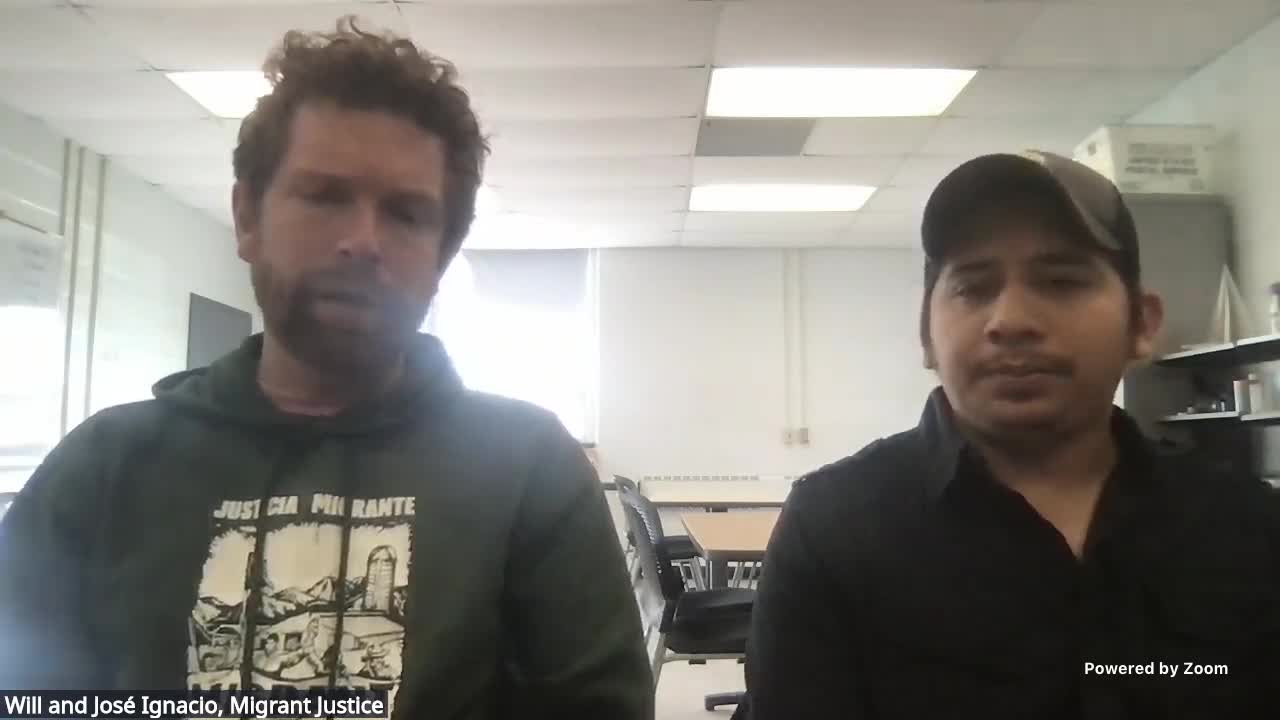Vermont farmworkers and advocates tell committee detentions, enforcement and fear are limiting access to food and health care
Get AI-powered insights, summaries, and transcripts
Subscribe
Summary
Farmworker testimony and advocacy groups told the Agriculture, Food Resiliency & Forestry Committee that increased Border Patrol and ICE activity is constraining movement on farms, worsening food access and delaying treatment; advocates urged stable funding for Bridges to Health and warned legislative tools are limited.
Members of Vermont’s farmworker community and advocates told a state legislative committee that intensified immigration enforcement and a rise in detentions are constraining movement on farms and worsening access to food and health care.
"The language barrier created problems," said Jose Ignacio, describing a system in which employers sometimes buy groceries for workers and workers must rely on those choices. He also recounted being stopped and detained by Border Patrol after delivering food to a nearby farm. "I was pulled over by the Border Patrol, and I was detained and held in detention," he said, adding that community mobilization secured his release.
Will Lambek of Migrant Justice told the committee that his organization has "documented and worked directly with over 100 immigrants in Vermont who have been detained" this year across "more than three dozen different enforcement actions," including a Franklin County raid that led to the detention of eight farmworkers. "This is more than a tenfold increase" from the prior year, Lambek said, and he described the impacts as traumatic for individuals and destabilizing for families.
Witnesses described practical consequences beyond detention: constrained movement can prevent workers from seeking prompt medical care or from getting culturally appropriate food. Ignacio described living with a toothache for two weeks because no one would take him to a hospital, and said that hospital visits were routed through emergency backdoors to reduce perceived exposure to enforcement.
Advocates tied those constraints to broader risks. "When workers are trapped on that farm without freedom of movement, that isolation breeds vulnerability, and that vulnerability breeds abuses," Lambek said, noting increased reports of sexual harassment and other labor violations to Migrant Justice’s hotline.
Multiple speakers urged the committee to support programs that provide direct outreach and navigation, most notably Bridges to Health, which uses community health workers to coordinate appointments, vaccines and food access on farms. Committee members said they would invite more detailed briefings in January; Lambek cautioned that while state options exist, many enforcement policies are controlled at the federal level and legislative remedies are limited.
The committee did not take formal action on the testimony at this meeting; witnesses asked to return for longer briefings in the next session.
